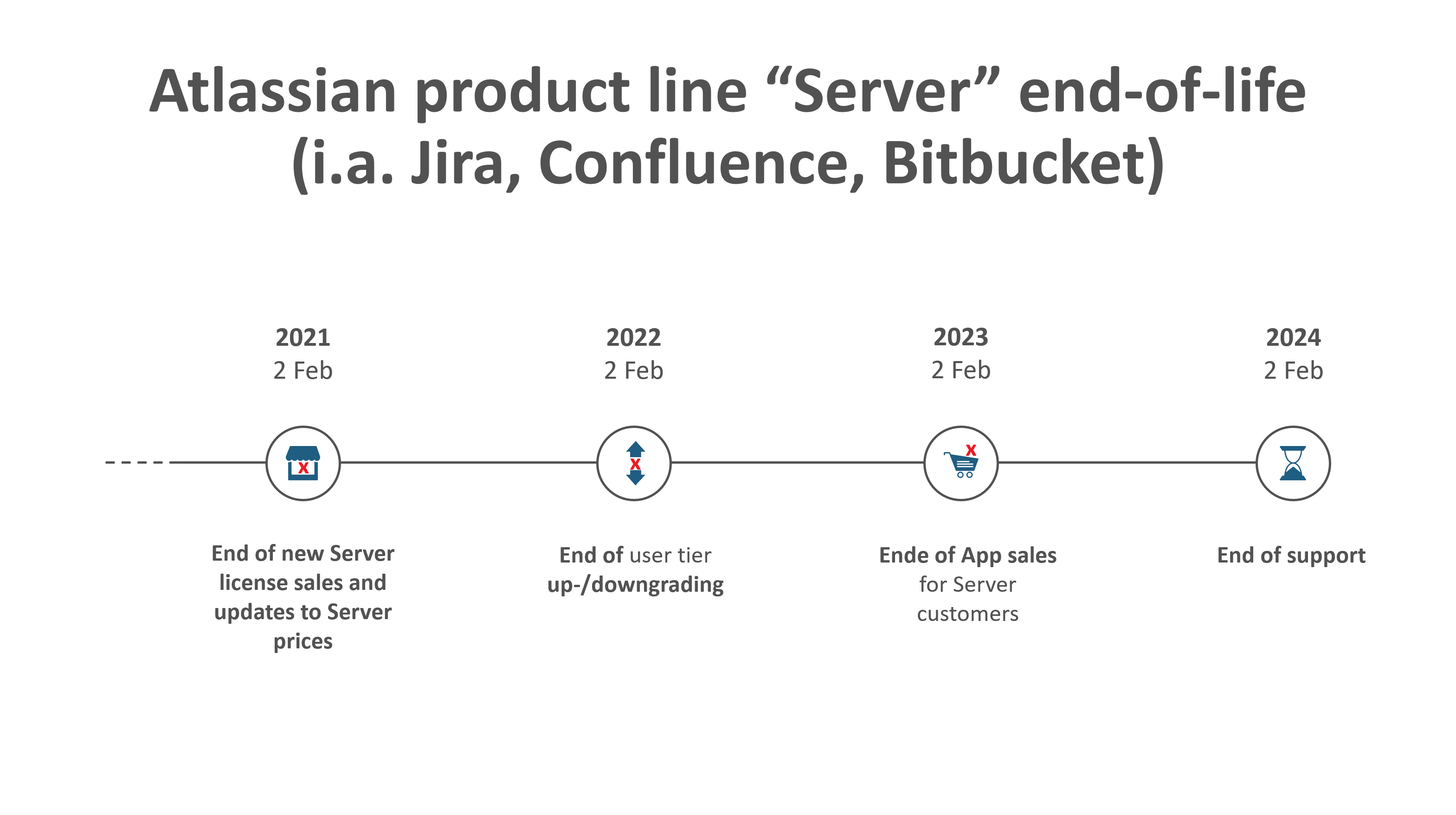Migration Options
-
ALM Octane
ALM Octane is a web-based application lifecycle management platform that enables teams to collaborate easily, manage the product delivery pipeline, and visualize the impact of changes.
Your ALM Octane edition defines which activities you can perform in ALM Octane. You can chose from Team, Pro and Enterprise Edition.
- On-premise (incl. support for Azure and AWS private cloud) or SaaS offering
- Docker images
- Both named and concurrent user licenses
- All features come out-of-the-box; No additional charges for plugins
- As a developer you can access ALM Octane directly from within your IDE without consuming a license
- Migration from Jira Server to ALM Octane is supported by software
- If you are using Jira Server and ALM/QC today, you could reduce another chunk of infrastructure costs
- You should also check all security and audit relevant topics with the responsible colleagues in your organization
-
Jira Cloud
- Jira Cloud’s REST API is different compared to the Jira Server one:
- Your REST API based integrations have to be changed
- Your REST API based reports have to be changed
- Not all plugins available for Jira Server are also available for Jira Cloud
- Depending on your current versions of Jira Server and its plugins your upgrade journey might become quite extensive
- Clarify with your IT Security Officer important topics such as user and API access, access to your data by 3rd parties, Marketplace Apps and its REST APIs etc.
- Clarify with your Auditor important topics concerning IT Audit
- Integrations with on-premise applications like Jenkins, Teamcity, IntelliJ, Git etc. are not always stable and we advise to check the integration with a PoC
- Running software in the cloud comes always with a dependency to a 3rd party:
- Check your customization requirements with Jira Cloud Support
- Check if the offered services and it corresponding SLAs match your requirements
-
Jira Data Center
- Normally, migration efforts are lower compared to going into Jira Cloud
- However, Jira Data Center licenses are way more expensive
- If you are using Jira Server’s embedded HSQL database, you have to migrate to an external one supported by Jira Data Center
- Jira Data Center requires a specific infrastructure (load balancer, cluster, database, file system) that might cause some issues
- Jira Data Center rollouts are more complex than Jira Server rollouts
- Higher maintenance, operating and administration costs
